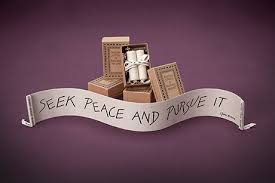
Keep your tongue from evil, and your lips from speaking deceit.
Depart from evil, and do good; seek peace, and pursue it. [Psalm 34 13-15]
Kapos were Jews who served as lackeys of the Nazis and their role in the Holocaust has remained an open wound in Jewish memory. Regrettably, it has since been used to smear fellow Jews as traitors/betrayers of the worse kind. Right-wingers have used it to vilify and silence liberal Zionists who support peace and a two state agreement.
David Friedman the designate ambassador has joined the ranks of those who disparage liberal Zionists with the intent to silence them. Friedman has chosen to defame those who don’t share his commitment to support the settlers, promote the idea of the Greater Israel and the perpetual occupation of Palestinian land.
His slander of J Street and its supporters is a deliberate distortion ingrained in “fake news” that produces hateful lies with the goal to destroy reputations. This politically motivated production of lies has mushroomed in Trump’s universe before and after the election and we should expose and resist them. I therefore turn to confront Friedman’s statement that J Street supporters are “smug advocates of Israel’s destruction delivered from the comfort of their secure American sofas — it’s hard to imagine anyone worse.”
The rebuke to Friedman emerges in the real world where facts and values come to life in action. On September 28, 2013 J Street held a two-day conference that brought together some 2900 Americans and Israelis to the Washington Convention Center. It is instructive to see who were the people who responded to J Street’s invitation. Among them were Israeli Members of Knesset, Left and Right, religious and secular, women and men who came together to discuss the peace process and a two states agreement. Leading the way for a public commitment to a two-state solution was Justice Minister and Israeli Chief Negotiator Tzipi Livni who gave the opening keynote address, followed, two days later by Member of Knesset Zehava Galon, Chairwoman of the Meretz party.
The panelists included Deputy Speaker of the Knesset Yitzhak Vaknin of the Shas party, Member of Knesset Meir Shitrit of Hatnuah Party, and women Members of Knesset Ruth Kaledron of Yesh Atid, Merav Michael and Stav Shaffir, of Labor. The least likely supporter of two-states was Member of Knesset Tzachi Hanegbi of Likud Yisrael Beiteinu. One of the questions to Hanegbi, a scion of a famous Irgun/Etzel family, was why he had opposed a two-state solution twenty years earlier. Hanegbi replied calmly that he was not the same person he had been twenty years ago, and looking at his Knesset colleagues on the panel and at the audience he added that none were the same people they had been twenty years earlier.
The wide range of panelists at the conference included academics, rabbis, writers, journalists, and leading Palestinians like Husam Zomlot, Executive Deputy Commissioner for International Affairs Palestine and Samih El-Abed Member of the Palestinian Negotiating Team. While the Israeli members of Knesset framed their support for a two-state agreement differently, from security concerns to pragmatic considerations to Jewish and/or universal moral principles, there was a surprising respect for pluralism.
Jewish pluralism was evident in a Minhah Minyan, the afternoon prayer service that I attended. The service challenged conventional notions that pro-peace Jews are secular leftists rather than devout Jews with different political positions. The designated room for Minhah overflowed with people, the majority of them university students and when I asked about siddurim, prayer books, the students took out their smart phones with a siddur. They happily showed me how to download the prayer book on my I Phone, shared electronic siddurim with others and some of them offered their phones since they knew the Minhah service by heart. Those who came to the service included orthodox men, who stood in one corner of the room while others seemed comfortable in an egalitarian service.
While pluralism may seem a product of modernity it is in fact an ancient Jewish value. It has been emblematic in the fierce debates, mahloket, between the famous sages Hillel and Shammai. They left a legacy of two different schools of thought that has infused Jewish life and encouraged diversity and multiple viewpoints and discussions that open up the road for solutions.
The J Street conference in 2013 offered a unique space for pluralism infused with a sense of respect for difference in the Jewish tradition. This value of respect was evident despite vastly different positions at the conference on issues like refugees, Jerusalem, and final borders. As Amos Oz phrased it, “There is more than one way to be a good Jew, a good Zionist, to stand for Israel. No one can claim Zionism to themselves.”
Liberal Zionism is rooted in Hillel’s school of Jewish values and follows of what the sage so clearly instructed, “Be among the disciples of Aaron, loving peace and pursuing peace.” Hillel understood that loving peace is good, but not enough, we must actively pursue it. J Street and its followers take on the mitzvah of Rodef Shalom, the pursuer of peace in the U.S, in Israel and around the world. Liberal Zionist organizations stand on an ancient ground of Jewish pluralism and the pursuit of peace.
David Friedman chose to place himself in a Jewish history of Sinat Hinam, baseless hatred expressed by Jews toward other Jews with whom they disagree. This intrna-community hatred was, according to rabbinic tradition the cause for the destruction of the temple in Jerusalem. Friedman should not be the United States ambassador to Israel. And we should not be bystanders.
We can sign petitions to reject his nomination. Here is Partners for Progressive Israel’s petition click here to sign